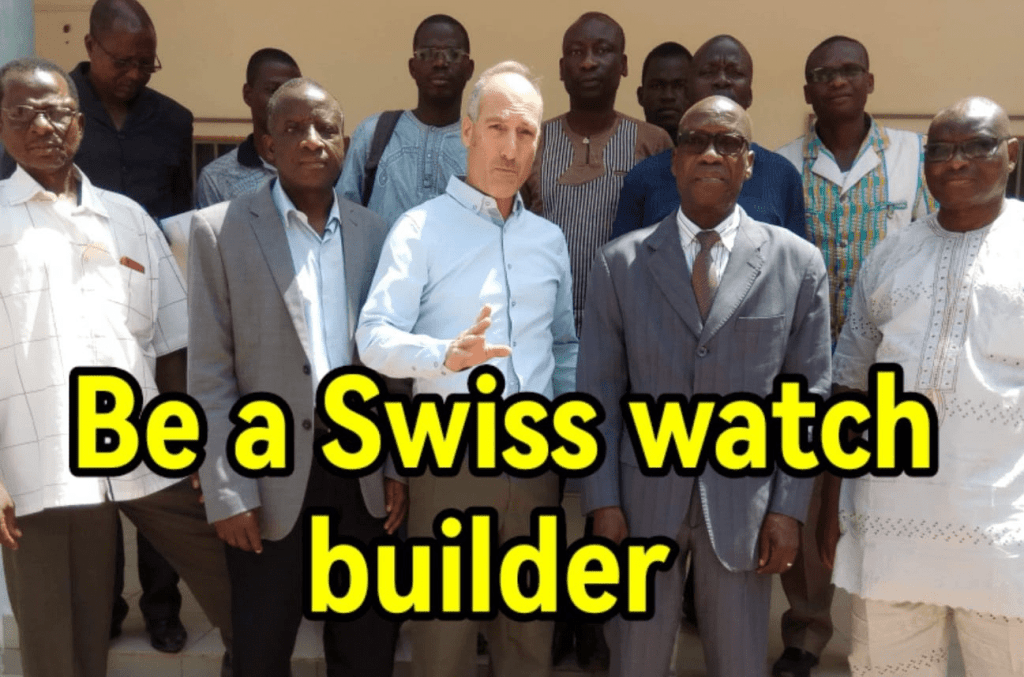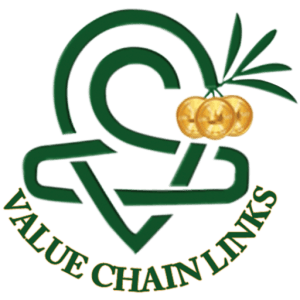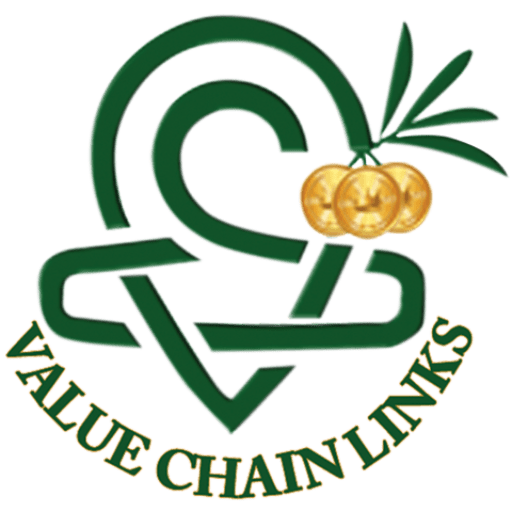
| WHAT CAN THE AGRO SECTOR LEARN FROM BUILDING “SWISS WATCHES”? |
| “Shortcuts and “savings” eventually turnout the longest and most expensive path.” |
It was early summer, and the most prominent annual pan-African conference on agriculture and technology began. I entered the conference hall a bit late and sat in the second row in front of the podium.
The Minister of Agriculture was already on the podium delivering his speech. The spotlight was directed at him, making his view of the audience somewhat tricky.
The Minister spoke enthusiastically about the progress of the agro sector in his country and the expected technological leap that would bring prosperity to farmers of his country.
Then the Minister provided detailed examples –
First, using Israeli technology and know-how, a greenhouse farm for growing vegetables for the local market.
Second, an Israeli research institute works to solve a disease that harms cocoa plants. The Minister was expecting a solution within two years.
Third, a technological solution provided by Biofeed solves the problem of fruit flies without the need for sprays.
I hear the Minister’s complement in complete surprise. Did I hear well? Did the Minister give the most outstanding approval to the Biofeed’s Freedome technology?! Could it get any better, such a statement in front of a room full of agro-experts?
Yes, he did! A big smile stretched across my face as I realized what had just happened!
I am thinking to myself, in twenty-five minutes, when the presentation session is over, I will reach out to the Minister, shake his hand and warmly thank him. Then I will thank the Israeli Ambassador sitting next to the Minister.
In the meantime, there are more speakers, and I have time to think about the Minister’s speech.
SIR, WHAT IS THE TIME?
Before sharing my thoughts, let me ask you this – suppose you have no watch and need to know the exact time (hour and minutes) numerous times a day. What will you do?
Looking at the sun or moon wouldn’t help you too much. Another option is asking someone who does have a watch.
In such a case, there is the risk that you will become a nuisance. But also, what happens if there is no one around with a watch?
Sooner or later, you would conclude that you can’t be dependent on others and you need to build or buy your own watch.
Building a watch, a machine that tells the time, is a task that requires resources, i.e., dedication, skills, know-how, access to technology, capital, and… time.
But once you have completed building your own watch/time machine or purchased it, you will no longer depend on estimation or random people and “miracles” to know the time.
From that moment, you don’t need favors or be stressed, hoping for a miracle to meet someone with a watch whenever you need to know the time. Hey, you can even help those who still don’t have a watch.
DEPENDING ON RANDOM “MIRACLE” EVENTS IS NOT A STRATEGY
As I sat in the conference hall, I tried to figure out the meaning of the Minister’s speech.
On the one hand, in terms of professional recognition, it was better than I could hope for. I mean, this can be easily translated into sales of many Freedome units. I should be celebrating this with a bottle of good champagne!
On the other hand, I didn’t feel victorious, and I didn’t know yet why.
Maybe, because I knew too well that effective fruit fly control is necessary but not sufficient for a thriving agro sector (as the Minister described and sees in his vision).
Perhaps because I knew that the local farmers’ income per hectare is as little as ONLY 1% to 5% of their Israeli colleagues, though this fact is apparent, it is easy to ignore or skip it.
I know that NO magic or miraculous technology by itself could ever close that gap.
Or maybe I felt awkward because the Minister referred to Freedome as a “magic” or “a miracle” solution.
Honest to myself, I know Freedome is a scientific and technological breakthrough, enabling the replacement of pesticide sprays with eco-friendly technology providing far better results (proven during 22 years of fieldwork).
But it is not “magic”! My team and I worked hard enough on its development to know that willpower and long-term vision won and brought that achievement, not miracles.
THE WATCH’S COMPONENTS
Why technology alone can’t close the gap, and if so, what can?
Technology helps do things more effectively (less effort, lower cost, etc.). In the example of the person without a watch, we would offer that person a technology that tells the location of the nearest person wearing a watch.
This would make him more effective but doesn’t solve the core problem of the dependency on others to know the time each time he wants. To become independent, he must have, build or buy a watch.
When building/buying a watch, he would need to consider the reliability he expects from it; should the watch survive months or years, the working environment (humidity, heat, dust, hard hits, etc.), and the risk of a “watch failure” when he needs to know the time.
If this person is diving and his life dependent on knowing the exact time, he probably won’t compromise on anything less than the quality of a “Swiss watch.”
Governments, leaders, and stakeholders in non-developed economies are sure that because of the relatively low cost of human labor in the agro sector, farmers can survive on random “miracles,” running to ask the time whenever there is an emergency.
That big mistake keeps farmers in poverty for decades and will continue unless we start “building watches.”
In contrast to the above, Israeli farmers are world leaders because decades ago, its stakeholders and farmers focused on “building dedicated quality watches.”
The Israeli Agricultural Model is the Swiss watch of Agricultural Models for undeveloped economies.
Today we call these “watches” – Ecosystem. The success of any industry depends on its foundations, which are the Ecosystem, business models, and technologies. Note that not by coincidence, technology tools come last.
Israel’s agro sector Ecosystem, business models, and technologies have changed and improved through the years.
Nowadays, Israeli farmers owe their success to stakeholders that build a dedicated ecosystem and business models with a “Swiss watch” quality operating mechanism.
“And what about Technology?” you may ask yourself. Advanced technology, which you see today, became part of the Israeli landscape only decades after its inception.

BUILD YOUR TAILOR-MADE WATCH
The common habit of non-developed economies is to “work fast”; in the hope of quick wins looking for the next random miracle tool or solution.
In this sequence of events, a “miracle innovative solution” is found, presented, and distributed only to be found some month/years later as nothing more than a mirage; income has not increased, and smallholders are still poor.
The agro sector is notoriously known for that and its result of advancing at a painfully slow pace, often in a random, uncoordinated and unplanned manner.
If you want to move fast, work slowly (Festina lente). Start by building your “Swiss watch,” containing quality mechanism elements; Ecosystem, Business models, and Technologies/services.
If we follow that order, we stand a chance and can eventually close the agricultural gap.
Sadly, the Minister skipped the two most critical elements in his speech and jumped to the end… the Technology.
‘Technology’ is an easy answer, for it is easy to understand leaders’ rationale. We can sum it up as follows, “Our farmers are poor because the technology they need is unavailable or inaccessible.”
It is very convenient to blame “technology” without pointing the finger at leadership, management, planning, etc.
Responsible leadership will begin by building the appropriate infrastructure for success, i.e., ecosystem and business models, and only then will it define the Technologies needed to improve results.
Attempts to initiate a change starting with technology are doomed to failure. This is like expecting magic or a miracle that will never come.
The proper order in building an Operational Machine would be; Ecosystem, Business models, and Technology/service, in this order.
There are no shortcuts to prosperity!
When you build an effective mechanism, a “Swiss watch,” you never ever begin with the technology.
Even technological companies begin with establishing the entity in the right marketplace (Ecosystem), thinking of what and how they want to sell (Business model). Only then do they develop and manufacture the required/needed Technology.
Do you remember Bill Gates’s statement about fertilizers? “It’s a magical innovation.”
My message to Mr. Gate is – There is no magic and has never been! Microsoft sells billions of $ thanks to building an advanced Operation Machine, operating within the right Ecosystem, and using suitable business models.
Can anybody point to a current “magical innovation” in the business success of Microsoft?
Sure, Microsoft is using Technology, but it is not “magical.” Yet, Microsoft is a business success. Why? Because of the well-designed and applied Operational Machine.
The agro sector in any given country needs to follow the same route and build advanced quality Operational Machines that would bring business success.
Farmers of non-developed economies have had enough of “magical innovation.” Now is the era of the “operation machines builders.”
Build now your advanced Operational Machine, your Swiss watch, to help the agro sector in your country become prosperous, as all successful companies and governments have already done.
And for those trying to rely on random technological or financial magic, I say there is not enough money and technologies in the world to help you, your country, and farmers bring the change you want and deserve having.
As to the Minister of Agriculture, I was happy with what I had heard and unhappy with what was missing from his speech.
More thoughts would have to wait; 25 minutes passed, and the session ended. It was time for me to shake hands, smile, receive compliments, and celebrate.
“MIRACLES” DELAY SUCCESS
When we set our minds to expect (and wait) for “magical innovation,” we aim for failure. This is because we neglect to invest in the foundations of our success, i.e., building Operational Machines (Watches).
Here are some of the keywords for “miracles and magic” in the agro sector – innovative technology, chemicals, genetics, digital, AI, deep data, big data, automation, computerized applications, subsidies, grants, loans, etc.
Sadly, this is no more than “smoke and mirrors.” Those are coming and going after spending millions and losing years, leaving nothing more than disappointment, deeper poverty, and disbelief in the ability to have a better future. Although it is not on purpose, in practice, it postpones farmers’ and national economic success and prosperity.
Marketing the above keywords, technologies/services, without relating to their negative impact and the DELAY it causes, presents a moral-professional compromise.
We are responsible for facing farmers, leaders, stakeholders, governments, and decision-makers and telling them – “Our technology/know-how would serve you far better if it is applied under the umbrella of a suitable ecosystem and proper business model.”
If we don’t do it, we risk contributing to the persistence of poverty and hunger.
Africans and other undeveloped economies that wish to create prosperity must now invest the time and budget to build advanced tailor-made Operational Machines based on its three dedicated components; Ecosystem, Business Models, and, last, Technologies.
IT’S NOT A DESIRE; IT’S A NECESSITY!
Oddly enough, when I realized that people treat the Freedome as a miracle and magic, I understood how irresponsible it would be to sell it simply “over the counter.”
I can’t follow the bad example of the agrochemical companies and sell knowing its positive impact would be marginal without a protocol and complementary elements of the Ecosystem and Business model, which helps farmers increase their income.
I can easily imagine what would happen when farmers find out that to transfer from poverty to prosperity, they miss far more than breaking through the zero-spray innovative fruit flies solution.
I had not developed the Freedome to delay the economic development of nations and farmers in undeveloped countries; on the contrary!
The decision was easy – Freedome and my attention (experience, knowledge, and abilities) will be available for those countries ready to commit to changing the lives of farmers from poverty to prosperity by building advanced Operational Machines, as Israel did over 70 years ago.
As you understand, in the Operational Machine containing; Ecosystem, Business models, and Technologies/services, the Freedome is one element among others to which farmers should and will gain access.
Do you think the decision to enable access to critical technology only to those ready to commit to change is right or wrong?
What would you decide and do if you were in my place?
BUILDING OPERATIONAL MACHINES IS A PROFESSION
I have no illusions, and I don’t think it would take a day, a month, or even a year before countries and leaders start engaging and considering “building Operational Machines for the agro sector.”
SO, instead of sit-and-wait, I got into action.
I began by establishing Dream Valley (DV) and developing an inclusive model that any leader and community/organization can easily implement as a “plug and play” operational model.
DV introduces the first “Operational Machine” of its kind; the Dream Valley program and platform model.
Indeed, today any leader or organization can initiate a Dream Valley (DV) program without waiting years or investing hundreds of millions $, saving millions spent on unneeded technologies and services.
What is needed to initiate a DV program?
To start, ensure that there is a positive and active supportive cooperation with the national agricultural leadership and access to funds/investment to initiate the early phases before it turns profitable (1-2 years).
People ask me, “Is DV suitable only for mango growers?“
I answer, “Not at all. The beauty about models is that they are “models.” Once you have the blueprint, you can adjust them to different situations.
DV can be applied to any continent, country, region, crop, population, etc.
DV model is based on the Israeli operational model that has been working successfully for nearly 100 years in all Israeli agro sectors, all plant crops, and animals.”
Is that all? Not at all!
To further accelerate the pace of “machine-building” and enhance the economic development of underdeveloped economies, I am leading and taking an active part in the First International Conference on Business Models in Agriculture” (IBMA).
This conference is a game-changer in every possible way.
Before you start “building a machine,” you can hear how things are done elsewhere, meet commercial providers, and learn your options.
It enables access to stakeholders worldwide to gather and discuss mutual problems and challenges. Experts can share failures and success stories and learn from one another.
If you are lucky, you will leave the conference, not with an order for another piece of “innovative technology.”
Instead, you will understand what you should do and how your money should be best invested for a meaningful strategic impact on the entire agro sector of your country. You can achieve this by building an advanced “Operational Machine,” maybe even one based on the Israeli model.
Think of it; when you invest one million $ in fertilizers or seeds, the next year, you have nothing left; you need to start it all over again.
In contrast, when you invest in Operational Machine building, i.e., ecosystem and business models, you get to keep and use it for decades, which will assure you will increase your income.
WHY NOW?
Five hundred million smallholders are responsible for the livelihood of over 2 billion people. We, who live well, are responsible for the well-being of those two billion people.
If making good to one person makes you feel good about yourself and your achievements, imagine how you would feel making good for hundreds of millions, creating a legacy, and leaving your footprint on the history of nations!?
Doing well for others (and yourself) is essential, but Dream Valley is business-oriented, so remember that you can benefit financially too.
This market of those two billion people is valued at multi trillions $!
A HUGE business opportunity is awaiting investors and business people who will join me on this journey.
Remember that before Amazon, people didn’t think there was a business in trading with books and goods coming from the East.
I invest my efforts in the agro sector of non-develop economies because I see the need, the good I can bring, and the immense business potential to all parties/partners involved locally and globally.
Contact me (nisraely@biofeed.co.il) and discover why investing in the agro sector of non-developed economies is a WONDERFUL opportunity right now, especially with the new tools of Dream Valley and dedicated business models and taking advantage of markets’ long-term trends.
If you are interested, let me know, and I would be happy to meet (online or in person).
Leaders, businesspeople, and investors don’t wait for miracles; join me to change the landscape of 175 non-developed countries and build advanced Operational Machines.
| TAKEAWAYS» THE SUCCESS OF the agro sector depends on its Operational Models (“Machines”).» TRANSFORMING FROM POVERTY to prosperity requires advanced Operational Model.» BUILDING YOUR FUTURE ON RANDOM MIRACLES jeopardizes your future and postpone attempts for a positive transformation. |
| If you enjoyed the article please share it with friends & colleagues. » SUBSCRIBE « *** Mental and Economic Freedom Are Interconnected. *** |

